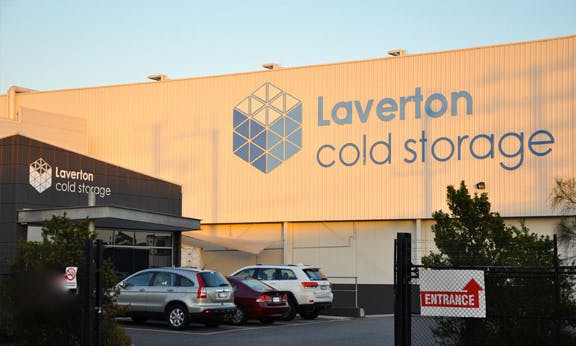A win at Laverton Cold Storage

Workers at Laverton Cold Storage in Melbourne’s west are celebrating a win after a 12-day strike backed by a solid picket.
Their new enterprise agreement includes union representation, induction rights and an immediate wage rise of more than $1 an hour (part of an 18 percent increase over three years). Pride of place in the settlement goes to a casual conversion clause. After three months as a labour hire casual, workers have to be taken on as direct employees. After a further six months, they must be offered a permanent job.
The win is especially significant because, due to Australia’s repressive industrial rules, only 10 workers were allowed to vote for legally protected strike action in this workplace of more than 80 people. Most workers at LCS are employed as labour hire casuals, who (because they technically have a different employer) can’t legally bargain along with their directly employed workmates.
LCS workers also had to overcome systematic bullying by management, which may deny workers a $3 an hour “bonus” for any reason, including for arguing with the boss. That’s hard for workers to avoid when the boss is constantly starting arguments by shouting at them.
Despite these obstacles, and rapid turnover in the shed, determined work by a strong shop steward during and prior to the dispute built up union density to around 50 percent. The workers and their union, the National Union of Workers, took the bold step of using the tiny amount of legal space available to declare a strike – and backed it with a solid, nothing-in nothing-out picket.
“I think the main lesson I learned was really to be patient”, NUW union delegate Inam Ahwang told Red Flag. “It was only a year and a half probably in the process, but it felt a lot longer than that. To try to recruit, and to instil the vision in most of the shop floor was easier for some, a lot harder for some as well.”
This was Inam’s first time on strike, but he was guided by the example of unionised workplaces he’d worked in, including his first job at Ford.
“I’ve worked in logistics all my life, and so I’ve always been involved in the union, from my very first factory, coming out of school”, he said. “At the Ford motor company, as employees, we had so much power. It was unbelievable. The conditions, the wages, were far beyond neighbouring factories around us.”
The new enterprise agreement won by LCS workers is only a first step towards the strong union agreements won by workers at Ford over many years of struggle. But it leaves workers much better prepared to take further steps next time. With more workers transferring to direct company employment, the union will be better placed to win improvements in their next enterprise agreement.
Management’s discretionary $3 “bonus” will now be subject to the disputes clause, and eventually mostly incorporated into the hourly rate, reducing scope for management bullying. And crucially, labour hire casuals who were employed before the strike – many of whom stood on the picket line despite not being legally protected for taking industrial action – will be given priority for rehiring now the strike is over.
“Our goal now is to go in there, encourage our day shift, our brothers who weren’t able to stand out with us on the picket line, but encourage them to say, ‘Hey, imagine what we could have achieved, if we had 90 percent or 95 percent membership’.”
Inam stressed that this is a win not just for the workers immediately involved but also “for our families, for future brothers and sisters that wish to join us in our factory. They’re going to really feel the impact that we made at this time. It’s going to echo throughout the whole of Laverton, that’s for sure.
“You’ve just got to find that fight in yourself, find that fight in everyone. And believe in everyone. Try and instil that fight in other people.
“I just want to pass on what I can to all our workers and even future workers. At least if we can pass that on and even support our neighbouring sheds that don’t even have an EBA, who are fighting for better conditions as well, and show our solidarity and our support.”
Inam also talked about the inspiration of the struggles of previous generations.
“They fought so hard, for fairer wages, for fairer conditions, and I just hope we can reignite that feeling all across Australia and that we’ll be able to take courage and take strength and overcome that fear that we might have. Fear’s a big thing, but if you can overcome it and [have] faith and believe in yourself, everything can be achieved.”
Inam singled out the steady trickle of workers from nearby sites – and many others – who called past and spent time on the picket line: “It’s been overwhelming … everyone is so thankful. We’re just speechless. Our love goes out to the community for their support”.
It’s the rest of us who should be thanking Inam and his fellow workers. Their efforts have demonstrated that a solid industrial strategy – methodical organising followed by industrial action and a serious picket – is still the way for workers to win.